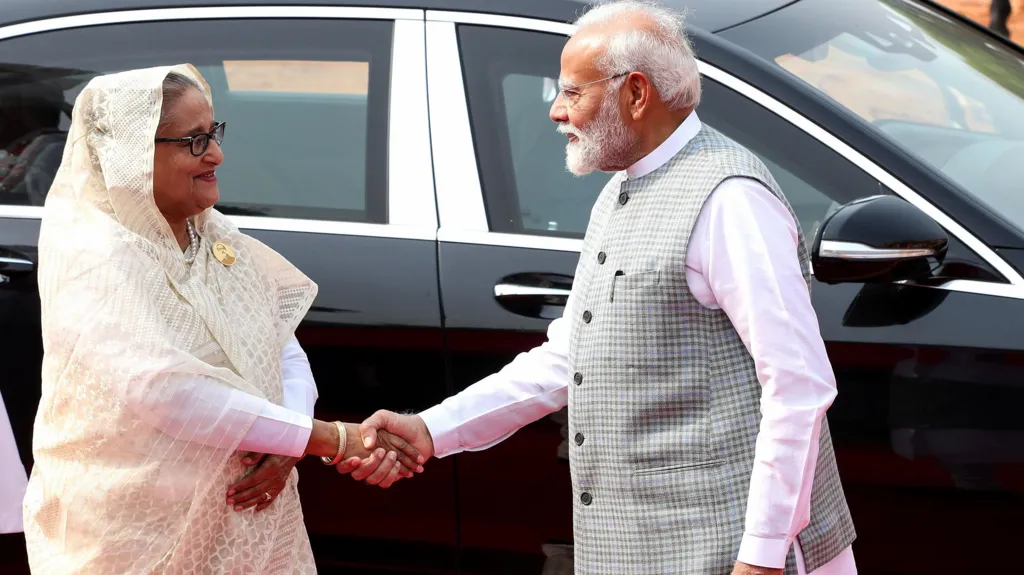In a high-stakes twist that could reshape South Asia’s geopolitical landscape, India finds itself at a crossroads, navigating the complex situation surrounding former Bangladesh Prime Minister Sheikh Hasina’s unexpected refuge in the country. Her dramatic ouster on August 5th, following weeks of intense student-led protests that spiraled into nationwide unrest, has left Delhi facing a diplomatic dilemma that could reverberate across the region.
Sheikh Hasina, a key ally of India during her 15-year tenure, fled Bangladesh in haste and has since remained in India, with unsuccessful attempts to secure asylum in the UK, US, and UAE. Originally intended to be a temporary stay, her extended presence in India has strained the already delicate relationship between New Delhi and the new interim government in Dhaka.

For India, Bangladesh is not just another neighboring country; it’s a critical strategic partner, especially in terms of border security in the north-eastern states. During Hasina’s rule, she was instrumental in curbing ethnic militant groups and fostering economic ties with India. This included facilitating India’s access to transport goods through Bangladesh to its north-eastern regions and securing over $7 billion in credit lines for infrastructure projects.
However, with the rise of a new interim government led by Nobel laureate Muhammad Yunus, India faces a daunting challenge. The deep resentment among Bangladeshis towards India’s unwavering support for Hasina’s Awami League, despite allegations of electoral malpractice, has left Delhi in a precarious position. This has opened the door for the Bangladesh Nationalist Party (BNP) to potentially regain power, complicating India’s diplomatic strategy further.
Adding to the complexity is the growing influence of China in the region. Beijing’s strategic advances in South Asia, exemplified by its engagement with the Maldives, could pose a significant challenge to India’s influence in Bangladesh. The fear of losing another key ally to China is a pressing concern for Delhi.
As India carefully manages Sheikh Hasina’s asylum and navigates the evolving political dynamics in Bangladesh, it must strike a delicate balance to maintain its regional influence. The decisions made in the coming weeks will be crucial in determining whether India can retain its strategic foothold in Bangladesh or risk ceding ground to rival powers.

